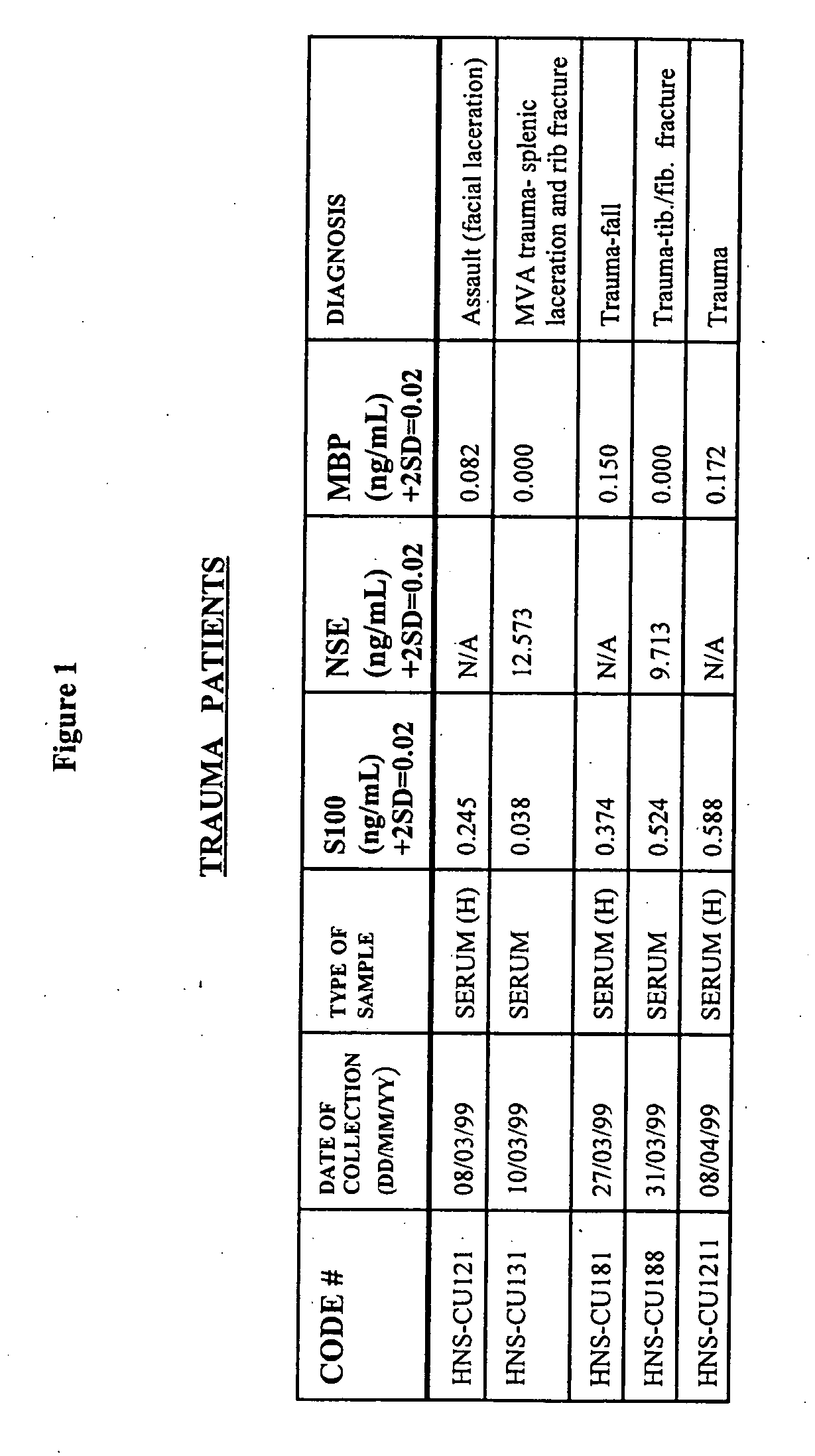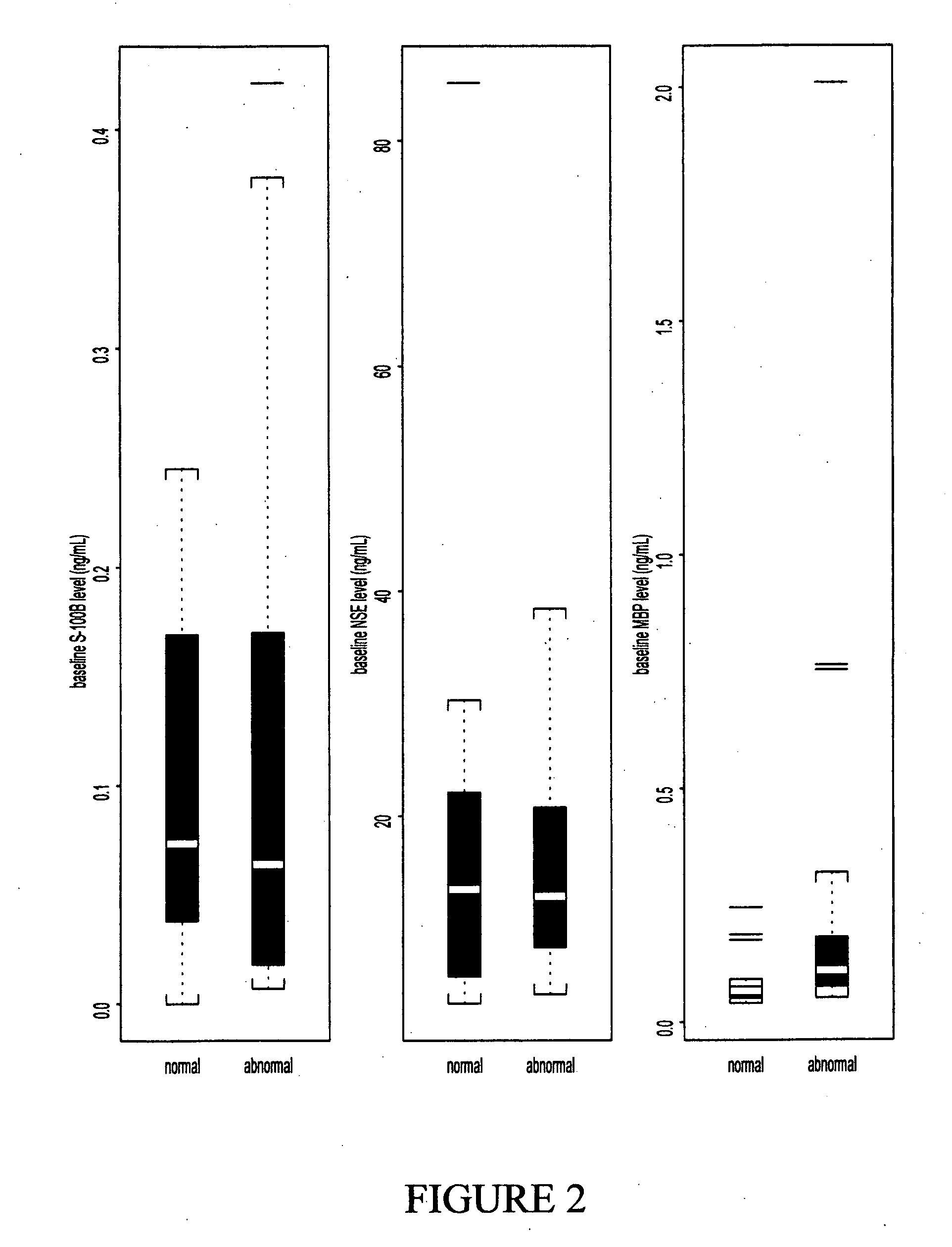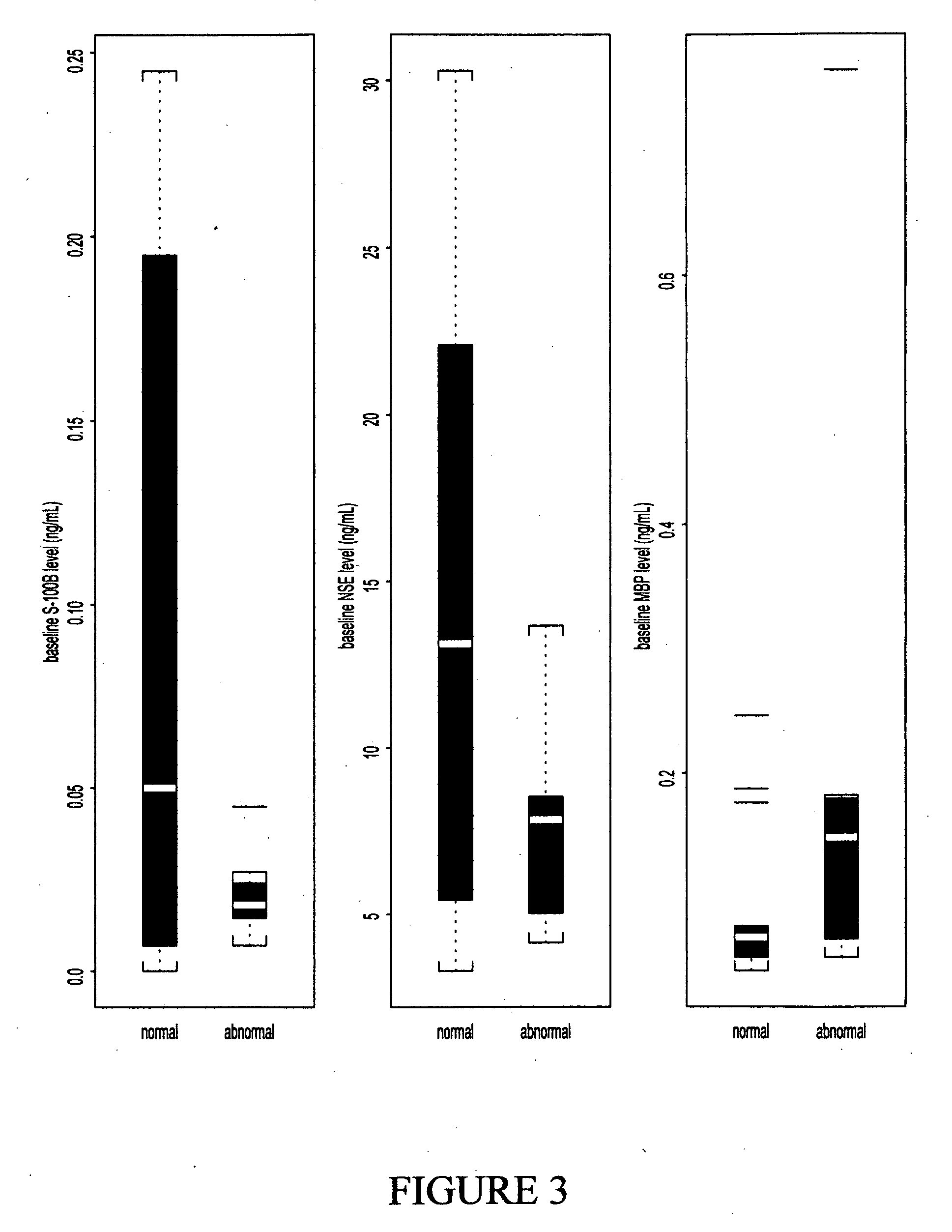Methods for predicting outcome in traumatic brain injury
a traumatic brain injury and outcome prediction technology, applied in the field of head injuries, can solve problems such as difficult interpretation of elevated s-100 levels, and achieve the effect of improving diagnosis and improving the effectiveness of the described assay
- Summary
- Abstract
- Description
- Claims
- Application Information
AI Technical Summary
Benefits of technology
Problems solved by technology
Method used
Image
Examples
example
[0123] A blinded case-controlled study was undertaken to compare serum levels of S-100β, NSE, and MBP in patients with TBI to age- and sex-matched control patients without TBI. The study was also useful for determining whether there is a correlation of serum levels of S-100β, NSE, and MBP with neurological findings and for determining if there is a correlation of serum levels of S-100β, NSE, and MBP with short-term functional outcome status at 2 weeks post-TBI.
[0124] Blinded Case-Control Study
[0125] Serum levels of S-100β, neuron specific enolase (NSE) and myelin basis protein (MBP) were measured in patients presenting to the emergency department of a major urban trauma center with symptoms consistent with traumatic brain injury (TBI) and compared with serum levels of these proteins in non-TBI subjects who were matched in age and gender.
[0126] Traumatic brain injury (TBI) results in the release of biochemical markers into the bloodstream in sufficient quantities such that the ser...
PUM
| Property | Measurement | Unit |
|---|---|---|
| concentration | aaaaa | aaaaa |
| concentration | aaaaa | aaaaa |
| time | aaaaa | aaaaa |
Abstract
Description
Claims
Application Information
 Login to View More
Login to View More - R&D
- Intellectual Property
- Life Sciences
- Materials
- Tech Scout
- Unparalleled Data Quality
- Higher Quality Content
- 60% Fewer Hallucinations
Browse by: Latest US Patents, China's latest patents, Technical Efficacy Thesaurus, Application Domain, Technology Topic, Popular Technical Reports.
© 2025 PatSnap. All rights reserved.Legal|Privacy policy|Modern Slavery Act Transparency Statement|Sitemap|About US| Contact US: help@patsnap.com



